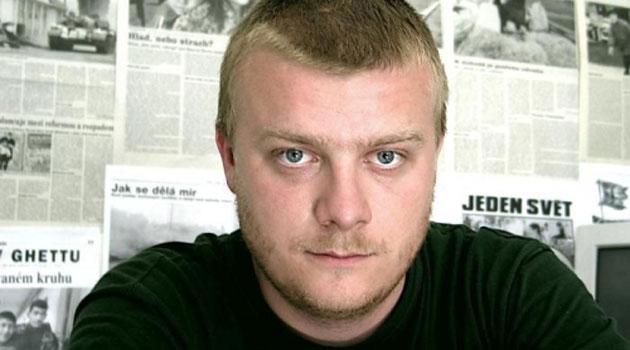Commentary: Czech right-wing populists close to destroying lifesaving social protections

This week the Chamber of Deputies is being given yet another opportunity to complete the corruption of the social protection system in the Czech Republic. If bills no. 290 and 652 are adopted, they will set in motion the destabilization of the sole functioning pillar supporting access to housing in the Czech Republic, the allowance for housing.
This is not the first time that this fundamental welfare payment, thanks to which hundreds of thousands of households in the lower middle class are housed (senior citizens, single parents, low-income families with children, people living with disabilities) has been pressured politically. However, this is the first time that the attack on this benefit has gone so far as to become dangerously close to becoming our reality.
It is an affront to common sense that the completion of this annihilation by these busy lawmakers is happening right now, at a time when, because of the novel coronavirus epidemic, unemployment is growing vigorously, more and more households are out of work (or relying on a single income for the family), the Labor Office cannot manage to disburse essential support without delays, and the end of the COVID-19 epidemic in the Czech Republic is nowhere in sight. Right-wing populists have lent a hand to this effort (above all MPs from the Civic Democratic Party – ODS and the “Freedom and Direct Democracy” movement – SPD, who are behind these bills) and have been systematically working to destroy the social welfare system for more than a decade.
Those politicians’ desires are symbolized by one change above all else – the creation of a lawful opportunity for collections proceedings to attach the funds disbursed as aid to those in material distress. That change is also a component of an extensive, relatively confusing package of adjustments that is gradually increasing in size like a snowball, picking up more and more amendments as it rolls along.
These legislative changes in the systems of aid to those in material distress and state social support have been wending their way through the lower house for two years in the form of bills no. 290 and 652. The complexity and opacity of the adjustments planned is apparently one of the reasons that most MPs are likely to vote for them.
The submitters of these bills, Czech MP Bauer (ODS) and Czech MP Okamura (SPD & Co.) are again haunting the lower house with references to “inadaptables” and evoking slogans about “welfare abuse”. What goes unnoticed is the fact that, in addition to the impacts of these bills on the people living in socially excluded localities, whose financial lives have already been decimated, this time the huge adjustment will affect a much broader circle of impoverished working people, including those whom even populists like Bauer, Klaus, Okamura and their colleagues would probably not go so far as to label “inadaptable”.
These alterations will affect at least three crucial welfare benefits: the allowance for housing, the allowance for subsistence, and the housing supplement. They will, therefore, actually affect quite a broad spectrum of inhabitants in the Czech Republic, or rather, very different “groups” of people.
The housing allowance and housing supplement would be able to be suspended for six months for beneficiaries living in housing that does not pass quality control and is not brought up to code in time. It doesn’t matter whether doing so is within the realm of possibility for the beneficiary at all, either economically or simply because the beneficiary does not own the unit and is therefore dependent on negotiating repairs with the owner renting the unit to them.
Beneficiaries will also lose their housing benefits if they refuse to allow bureaucrats into the unit where they reside, whether out of fear or any other personal reason. Most of these changes, however, target the system of benefits for the impoverished.
What’s more, both of these bills are listed in the online system as an “Amendment to the Act on Aid to Those in Material Distress”. They are continuing the trend of breaking this predictable, quickly-available aid to people who are in acute economic and social straits (“material distress”).
These bills increase inspections of the beneficiaries’ households and punish them for the slightest mistake – such as failing to submit an ever-growing number of documents, not arriving on time for meetings, or not facilitating inspections of the household under any and all circumstances. They also risk creating situations of double jeopardy for parents allowing children’s unexcused absences from school – which, according to current law, is already grounds for a family to be deprived of their housing benefits for three months and to newly be fined CZK 5 000 [EUR 194].
All of these proposed changes have been explained in detail on the website of the Institute for Social Inclusion (Institut pro sociální inkluzi). It is embarrassing that the Labor and Social Affairs Ministry has itself been directly contributing to the corruption of this basic network of social protection by having participated in drafting many of these amendments.
Czech Labor and Social Affairs Minister Maláčová should be standing on the front lines of those opposing adoption of these bills. She should be carefully, patiently explaining why they cannot be allowed to pass at this current time, which is so exceptionally demanding and difficult.
She is doing the opposite. She is demonstrating the beggary of Czech social welfare policy, which her ministry has allowed to crumble for years now.
The minister is leaving the initiative to the populists, who have been doing whatever they want to do with the system of aid to those in material distress for years – see, for example, their unconstitutional housing benefit-free zones, or their targeted reduction of the allowance for subsistence to the embarrassingly low minimum considered necessary for mere existence. This is not just another reason why the numbers of impoverished people are rising in the socially excluded localities that have become the target of the cheapest populism here, but it is also a budding social catastrophe that is overflowing any tolerable limits and is unsolvable at the level of municipal policies alone.
By the way, for a long time now it has no longer been the case that the people in the socially excluded localities are living there without work and surviving on aid to those in material distress. On the contrary, a significant proportion of those people are simply no longer able to claim these benefits, whether the allowance for subsistence or the housing supplement.
Those who are still able to claim aid to those in material distress have seen it shrink to a bare minimum. The safety net for people in material need has not been working here for a long time.
These bills, if adopted, will introduce one of the biggest changes to social policy in the modern Czech Republic. What is at stake is the stability of our basic social protections.
The emergency brake rests in the hands of lawmakers from ANO above all (paradoxically). It can only be pulled if they are aware that adopting these bills would throw their own voters under the bus, the very people to whom they have been claiming for years that “things will get better”.
